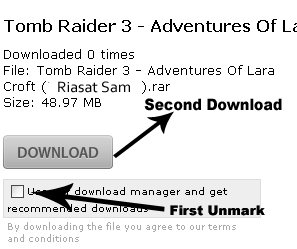Converting FLAC Recordsdata To Apple Lossless (M4a) Information
The way to convert M4A to FLAC on-line with M4A to FLAC Converter? After including M4A file, you can do some customizations freely. Press the "trim" button, you can trim the M4A file into several sections by dragging the sliders to set the length time, or adjusting the "Begin Time" and "End Time" columns. Click the "Edit" > "Audio", you'll be able to adjust the audio volume, customise "fade in" & "fade out" impact freely.
FLAC is an open format has a robust benefit for sustaining my library in that format, and the dropping price of huge arduous drives makes the scale of FLAC information less of a problem. while ALAC is used practically only by Apple merchandise. Compared to these two, all other lossless codecs are far much less extensively supported. The good thing about lossless although: in case you ever suppose you made the wrong selection, you possibly can always convert your library without any compromise in high quality.
The next display screen of the wizard really performs the conversion and reveals you the progress. Slightly tray icon may even blink when the conversion is full, which implies you possibly can minimize the audio-convert-mod wizard however nonetheless pay attention to when the conversion has completed. When the conversion is over, clicking Next permits you to start a new conversion or dismiss audio-convert-mod. I'd have preferred to see a Dismiss option where the Subsequent button is grayed out on this ultimate window. As it stands, you must move the mouse from Next as much as the Stop button to close audio-convert-mod.
I had a bunch of recordsdata to transform for itunes from my previous Home windows and Linux machines as I have been consolidating and downsizing. The app gathered all 500+ WMA and OGG recordsdata and tore via them in about three minutes! Every little thing went effectively, imported correctly and I am again to regular. When you think of it, maybe add an option (unless I missed it) to mechanically delete the unique files as an alternative of creating the consumer do it manually. Other than that, it was implausible! Highly beneficial for this task.
Ogg Vorbis - The Vorbis format, usually known as Ogg Vorbis due to its use of the Ogg container, is a free and open source different to MP3 and AAC. Its predominant draw is that it is not restricted by patents, however that doesn't have an effect on you as a consumer—in fact, byroncarron2.hatenadiary.com despite its open nature and comparable quality, it is a lot less widespread than MP3 and AAC, which means fewer players are going to support it. As such, we do not actually suggest it unless you feel very strongly about open supply.
FLAC vs. MP3, when it comes to high quality, all the time wins. Does it mean that higher quality leads to a better sound? Yes and no. The thing is that, yes, there is a very clear distinction in the sound when one listens to FLAC information. However this applies solely when they're utilizing good headphones and an applicable sound system. If the individual does not have any of these, and www.audio-transcoder.com tries to listen to FLAC recordsdata whereas wearing low-cost headphones - the magic is misplaced, and sadly, FLAC could sound to them just like MP3. That's why many people declare to hear no difference between FLAC and MP3 and it is obvious that they choose MP3 over FLAC - along with same high quality the dimensions is smaller! But they are so deeply mistaken. As you can see, it can be very hard to tell apart between these two formats if you are not using good headphones and sound system.
iTunes isn't compatible with as many file sorts and doesn't convert as quick as the perfect products we examined. Nonetheless, if you wish to import lossless files to iTunes as lossy information to save disk house, there is not any cause to make use of one other program. iTunes converts to only four file formats: MP3, Apple Lossless Encoder, AIFF and WAV. Additionally, if the file you're converting has DRM (Digital Rights Management), iTunes can't convert it as a result of doing so would take away the DRM.
audio-convert presents Ogg, MP3, FLAC, and AAC output codecs. In case you select Ogg output you will be offered the flexibility to preserve tags from the audio file and specify the output Ogg quality degree. By default the output file is saved in the same listing because the input audio file. By default the protect tags choice will not be selected, which appears undesirable, as you'd seemingly need to preserve as much information about your recordsdata as potential, especially because the metadata is prone to be tiny relative to the compressed audio.
This converter is very customizable with flexible settings. There's a preset editor provided for each format that will help you customise it to your type. You possibly can edit, create new presets, or delete olds ones. Free Studio helps 28 enter audio formats including MP3, FLAC, WAV, and WMA. Output formats supported include MP3, WAV, M4R, M4B, OGG, FLAC, AMR, ALAC, AAC, and WMA. It additionally helps you to extract audio from CDs, YouTube, and most video codecs.
Each iTunes and iPod devices support a number of digital audio file formats, including M4A, MP3, WAV, AIFF, and Apple Lossless, but not support FLAC. So, what the easiest way to switch FLAC to iPod with high quality? You have two choices: convert FLAC to M4A or to MP3. M4A is newer than MP3, gives greater high quality and is intended for its alternative. With M4A you can get larger high quality with a lower bitrate and file size.